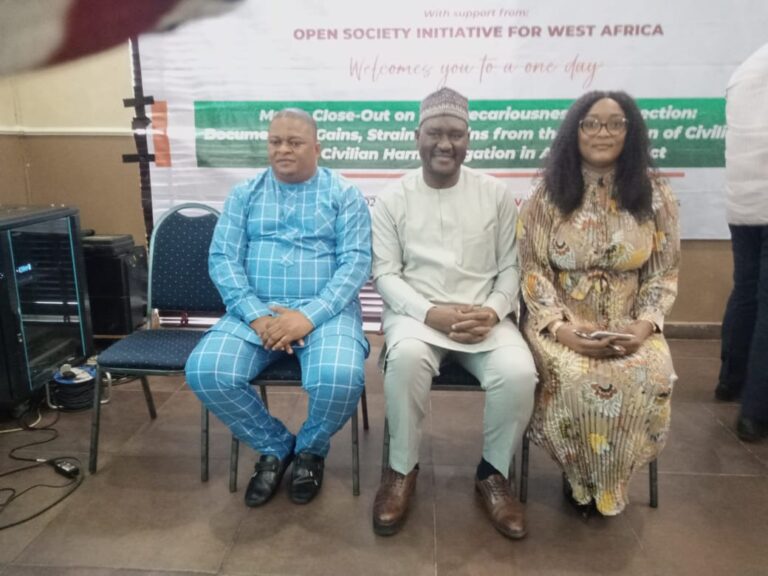A rights advocacy group, the Civil Society Legislative Advocacy Centre, CISLAC, has called on the Federal government to as matter urgency and concern order the removal of all military check points nationwide over alleged extortion and attack on civilians by military men.
The group also urged government to direct that police to take control of internal security.
President Muhammadu Buhari had in 2015 directed that all military checkpoints across Nigeria.
Military checkpoints multiplied across Nigeria after the insurgency intensified, causing terrible traffic snarls and subjecting commuters to untold hardship.
The call by CISLAC became imperative due to alleged reported and observed atrocities by the militarymen at roadblock, including extortion, abuse of power, attacks on innocent civilians.
According to CISLAC, Nigerians must not rest on their oars by insisting that all forms of injustice, harm and impunity against them are addressed by the government.
To achieve this, the group said it was taking critical measures, including collaborating with the Open Society Initiative for West Africa, OSIWA, media, National Assembly and other bodies to to mobilise “champions within the government, military and civil society to advance policies and practices that will help minimise civilian harm.
Executive Director, CISLAC, Auwal Musa-Rafsanjani said this at a news briefing tagged, media close-out, by the Civil Society Legislative Advocacy Centre in Lagos.
According to him, for one year, we have with the Nigerian government to develop a national protection policy that would put civilians at the heart of every civil security operation in Nigeria,
“We feel very satisfied at the progress we have made thus far with the House of Representatives’ Committees on defense and security, as well as members of the Technical Working Group.”
Musa-Rafsanjani, who spoke on the theme: “Precariousness of Protection: gains, strains and pains around the protection of civilians and civilian harms mitigation in around conflict,” said even with an existing Draft Bill/policy in the National Assembly and the Federal Executive Council, FEC, awaiting the President’s assent, his organisation has even gone further ahead to mentor senior defense and security stakeholders and community militia leaders to institutionalise civilian protection practices within their resoectice institutions.
He rued the conflucts across the country and their attendant negative impacts on our people, and noted that inspite of the advocacy measures taken to adress them, “Civilians still reported that they were regularly intimidated, sexually abused, physically assaulted, extorted”, including facing all forms of dehumanizing acts in the hands of security agents.
As an added fillip to this, there were indications for example that about 254 people were killed in 63 incidents in the first five months of 2021, largely induced by Boko Haram, ISWAP, IPOB abd kidnapping.
Musa-Rafsanjani said the failure of government at all levels, particularly in the states and local councils, has created public mistrust against them, urging the National Assembly to legislate a bill to protect the councils, enhance community engagements against civilian harms.
He said, “Civilians need to be made aware of the appropriate channels for reporting potential violations and civilian harms, encouraged to report potential violators, and are protected from any retaliation by the accused..”
He also called for stronger media-CISLAC synergy, especually through ensuring the full workability of the Freedom Of Information Act, FOA, so as to checkmate various impunities, corruption, harms against civilians committed by the government and its agents.
He said the FOA is not just for the media alone, but the entire country.
He pointing out that soldiers should be immediately withdrawn from the checkpoints in the country, as leaving them there is a dent on their image.
Also, the group said it would fight against nepotism and all forms of discrimination in the security system and pave the way for patriotism and transparency in governance.

